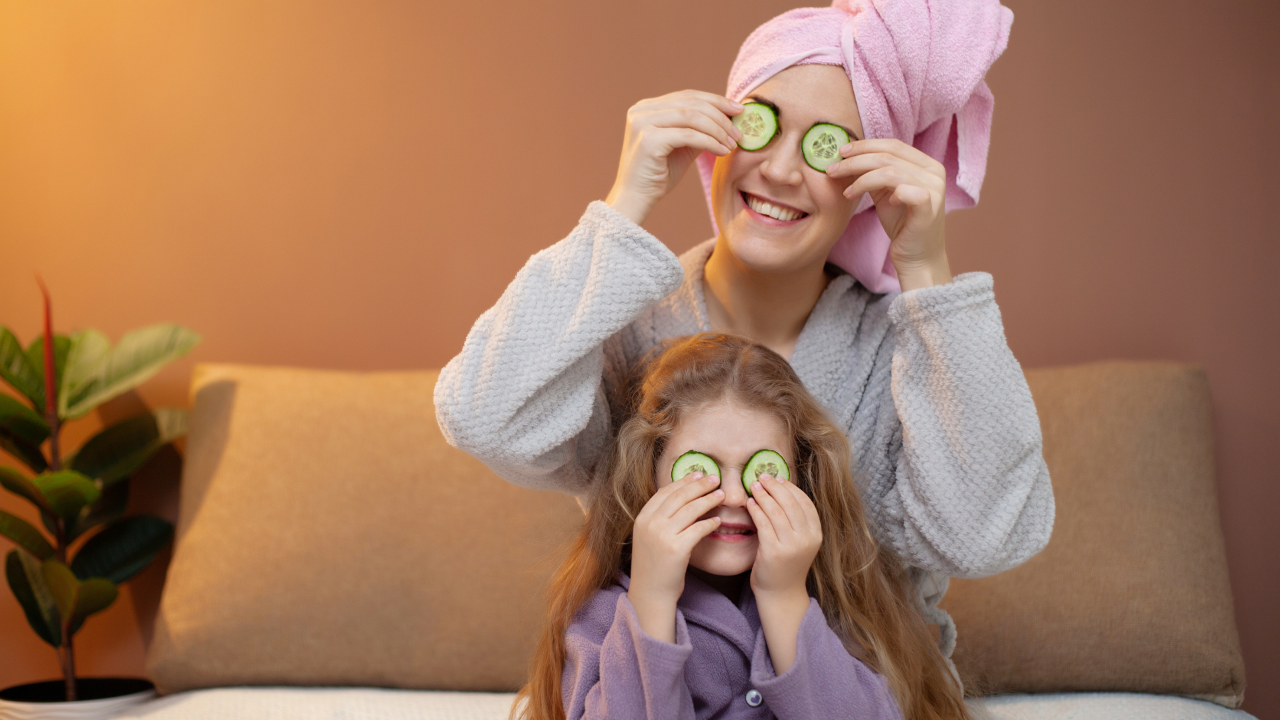What Kids Need to Know About Their Skin
May 20, 2025
Skincare for Kids Isn’t Just Cute — It’s Critical
By Dr. Mary Alice Mina | THE SKIN REAL
When you think of skincare, you might picture rows of serums, creams, and TikTok tutorials geared toward teens and adults. But what about our youngest learners? Believe it or not, teaching kids about their skin isn’t just adorable—it’s essential for long-term health and confidence.
In this week’s episode of THE SKIN REAL, I had the joy of speaking with Dr. Betty Nguyen, a dermatology resident and co-founder of Medical School for Kids, an educational series that helps children understand medical specialties starting with dermatology. Our conversation went far beyond the basics of washing your face. We explored why teaching children about their skin, bodies, and even potential careers in medicine lays the foundation for healthier habits and lifelong empowerment.
Let’s dive into the key lessons from our episode—and what every parent, teacher, and provider should know about skin health in children.
Why Skin Education Should Start Early
The skin is the body’s largest organ, yet it’s rarely discussed with young children beyond "don't forget sunscreen." By introducing simple, age-appropriate skin education early, we help kids:
- Understand their bodies
- Normalize differences in appearance
- Feel empowered to speak up about concerns like rashes or moles
- Learn lifelong habits like face washing and sun protection
Kids are curious by nature. When we use that curiosity to introduce real medical language (yes, they can handle words like "epidermis" and "melanoma"), we lay the groundwork for smarter decisions later in life.
The Basics: What Kids Should Learn About Skin
Dr. Nguyen’s books break down dermatology concepts for children ages 3 to 10, and here are a few key takeaways that kids can understand:
- The skin has three layers: the epidermis, dermis, and subcutaneous fat.
- Skin protects us, regulates temperature, and helps us feel touch.
- Washing your face and body helps prevent breakouts and infections.
- Sunscreen protects against harmful UV rays that can cause damage over time.
Introducing these facts in a fun and engaging way (think colorful books, role-play, or educational games) helps children absorb the information and make it part of their daily routine.
Sunscreen: A Non-Negotiable Habit
One of the most important skin habits for kids is sunscreen. It's never too early to start applying broad-spectrum SPF 30+ every morning—even on cloudy days.
Why it matters:
- Childhood sunburns significantly increase the risk of melanoma later in life.
- Daily SPF application teaches consistency and normalizes protection.
- Kids mimic what they see: if they watch you apply sunscreen, they’ll be more likely to do it themselves.
Tip: Use fun, kid-friendly SPF sticks or sprays, and let them help apply it so they feel involved.
What Should a Child’s Skincare Routine Include?
Forget the 10-step routines. For kids, skincare should be simple and supportive. Here’s a dermatologist-approved starter routine:
Morning:
- Rinse face with water or a gentle cleanser
- Pat dry with a clean towel
- Apply sunscreen
Evening:
- Cleanse skin (especially after sports or outdoor play)
- Moisturize with a gentle, fragrance-free lotion
Encourage clean hands before touching their face and help them understand that skin hygiene helps prevent breakouts and irritation.
Empowering Kids with Skin Conditions
Many children experience eczema, acne, or other skin conditions. Teaching them that it's okay to have different skin—and how to care for it—can improve self-esteem and reduce anxiety.
Supportive language, access to dermatologic care, and positive role models are all part of helping kids navigate these conditions without shame.
Encouraging Medical Curiosity
Another powerful takeaway from this week’s episode was how early exposure to science and medicine can spark career interest. Dr. Nguyen's series isn't just about health—it's about showing kids that they can grow up to become doctors, dermatologists, or researchers.
By helping children understand their own bodies, we're giving them the language, confidence, and curiosity to explore a world of possibilities.
How You Can Start Today
- Read together: Choose age-appropriate books about the body and skin.
- Talk about what skin does: Explain its role and why we protect it.
- Model habits: Apply sunscreen, wash your face, and show them what you do.
- Use real words: Don’t dumb down vocabulary—kids are capable of learning!
- Celebrate differences: Encourage acceptance of all skin tones, textures, and conditions.
Real skincare starts at home, not with fancy products, but with real conversations, consistent habits, and love. When we teach kids to care for their skin, we’re not just setting them up for healthier futures—we’re showing them that their bodies deserve attention and respect.






